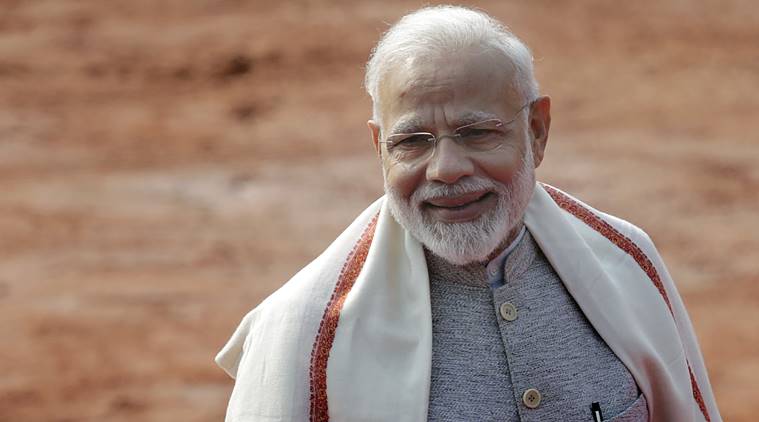Inside Track: Holes in the net
True, the DMK is now with the Congress, but by propping up the weak AIADMK government led by E K Palaniswami and O Paneerselvam, the BJP has alienated the main inheritor of Jayalalithaa’s mantle.

Despite gloomy reports of its prospects in the 2019 elections, the BJP puts up a brave face. The party brains trust assumes that even if the NDA is well short of the half-way mark, there is a safety net because neutral parties in four states, Odisha, Andhra Pradesh, Telangana and Tamil Nadu, will eventually back the single-largest party. But, by unnecessarily poking its nose in Tamil Nadu politics, the BJP may have lost the support of the two main political contenders in a state which contributes 39 Lok Sabha seats. True, the DMK is now with the Congress, but by propping up the weak AIADMK government led by E K Palaniswami and O Paneerselvam, the BJP has alienated the main inheritor of Jayalalithaa’s mantle, T T V Dhinakaran, who has popular support even if he doesn’t have the party symbol.
Aap ki pasand
The Congress high command has a problem convincing its party state units in Haryana, Delhi and Punjab regarding a tie-up with AAP for 2019. It fears that if it doesn’t tie up, the BJP stands to benefit. This happened in the Jind Assembly by-election last week, when the Congress’s Randeep Surjewala came third, behind Digvijay Chautala’s new party that teamed up with AAP. The Congress’s local units are reluctant for the tie-up since they fear that their clout will diminish in seat distribution. The high command, on the other hand, fears that the BJP could win all seven Lok Sabha seats in Delhi, for example, if there is no alliance with AAP. Incidentally, in talks with potential allies in states, the Congress’s position is that seat-sharing agreements cannot be based only on the party’s performance in the last parliamentary polls, when its popularity was at its nadir, and that its performance in the last three parliamentary elections must be taken into account.
Proximity pays
Many high-flyers in the Congress were eyeing the key post of general secretary in charge of organisation after Ashok Gehlot’s departure to Rajasthan. But to everyone’s surprise, Rahul Gandhi picked the relatively unknown K C Venugopal, an MP from Kerala, who carries some baggage. Venugopal’s performance as in-charge of the Karnataka Assembly polls was lacklustre and he has faced allegations of sexual misconduct in his home state. Venugopal’s strength is that he does not belong to the old-guard faction, nor is he one of the high-profile young heirs of political dynasties. But Venugopal’s biggest plus point is that he was allotted a seat in the Lok Sabha right next to Rahul. Venugopal used this proximity to his advantage. He makes it a point to attend Parliament regularly and stands unobtrusively beside his party chief whenever possible.
Belated award
When the late journalist Kuldip Nayar met Manmohan Singh for the first time, Singh, then economic adviser to the government, told him: “You deserve the Bharat Ratna’’. His remark was in appreciation for Nayar’s work in trying to bridge the gulf between Hindus and Sikhs post-1984. However, when Singh became Prime Minister, far from recommending an award for Nayar, he never even invited him for a cup of tea during his 10-year tenure. Nayar felt that he probably did not want to risk annoying Sonia Gandhi. Ironically, Nayar was posthumously awarded the Padma Bhushan last month, though the well-known journalist had often written critically of Modi. Nayar’s recollections of his meetings with Singh and other key figures of India’s political history — Gandhi and Jinnah to Indira Gandhi, Vajpayee and Modi — are featured in his latest book, On Leaders and Icons, which will be released posthumously this week. Among the many interesting anecdotes, Nayar recounts that Sanjay Gandhiinformed him after the Emergency that he had assumed his mother would not call elections for three to four decades.
Kicked upstairs
While Priyanka Gandhi’s induction as AICC general secretary in charge of eastern Uttar Pradesh was greeted with euphoria, many are puzzled by Jyotiraditya Scindia’s appointment as general secretary of western UP. The Madhya Pradesh royal has little association with the region. In this strange work allotment, Congress workers are also curious to know who gets control of Awadh in central UP. Scindia’s selection was perhaps an attempt to mollify him since the party could not make him president of the Madhya Pradesh unit, although he had earlier been denied the chief minister’s post. The seasoned Kamal Nath, backed by the shrewd Digvijaya Singh, ensured that Scindia was totally cut off from state politics. Nath continues as MPCC chief, at least till the polls. By elevating Scindia to the same status as Priyanka, the Congress felt it could smooth Scindia’s ruffled feathers.










.png)




























No hay comentarios:
Publicar un comentario